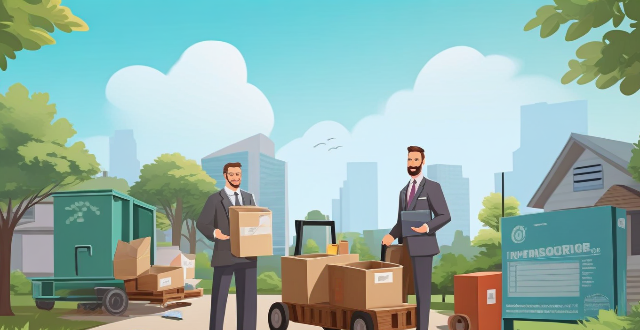Recycling and reusing second-hand items offer significant benefits for the environment, economy, and society. By reducing landfill waste, conserving natural resources, and lowering emissions, these practices help to mitigate environmental challenges. Economically, they provide cost savings for individuals and create job opportunities. Socially, they promote sustainability and community engagement. Overall, recycling and reusing second-hand items are essential steps towards a more sustainable future.

The Benefits of Recycling and Reusing Second-Hand Items
Recycling and reusing second-hand items are practices that have become increasingly important in the modern world. These activities offer a range of benefits, both for individuals and for the environment as a whole. In this response, we will explore some of the key advantages associated with recycling and reusing second-hand items.
Environmental Benefits
Reducing Landfill Waste
One of the most significant environmental benefits of recycling and reusing second-hand items is the reduction of waste sent to landfills. By repurposing old materials and products, we can significantly decrease the amount of waste that ends up in landfills, which helps to preserve valuable space and reduce pollution.
Conserving Natural Resources
Recycling and reusing second-hand items also help to conserve natural resources. When we recycle materials like paper, plastic, glass, and metal, we reduce the need to extract new raw materials from the environment. This conservation effort not only helps to protect natural habitats but also reduces the energy required for extraction and processing of new materials.
Reducing Emissions
Recycling and reusing second-hand items can also lead to a reduction in greenhouse gas emissions. The production of new goods often requires large amounts of energy, which can result in high levels of carbon dioxide emissions. By reusing and recycling existing materials, we can significantly reduce the energy needed for production and, consequently, lower our carbon footprint.
Economic Benefits
Saving Money
For individuals, recycling and reusing second-hand items can lead to significant cost savings. Buying used goods or recycling materials can be much cheaper than purchasing new items. This is especially true for items that are expensive when bought new, such as furniture, electronics, and clothing.
Creating Jobs
Recycling and reusing second-hand items also create jobs in various sectors of the economy. From collection and sorting to processing and reselling, these activities provide employment opportunities for many people. Additionally, as demand for recycled materials grows, new businesses and industries may emerge, further boosting job creation.
Social Benefits
Promoting Sustainability
Recycling and reusing second-hand items promote a more sustainable way of living. By adopting these practices, individuals demonstrate their commitment to reducing waste and conserving resources. This mindset can inspire others to follow suit, creating a ripple effect that leads to broader societal change towards sustainability.
Encouraging Community Engagement
Recycling and reusing second-hand items often involve community engagement and cooperation. For example, local recycling programs rely on residents to separate and dispose of recyclable materials properly. Similarly, thrift stores and online marketplaces facilitate the exchange of second-hand goods within communities. This sense of collective action fosters social connections and strengthens community bonds.
Conclusion
In conclusion, recycling and reusing second-hand items offer numerous benefits across environmental, economic, and social dimensions. By embracing these practices, we can contribute to a more sustainable future while enjoying cost savings and fostering community engagement. As individuals and society continue to recognize the value of recycling and reusing second-hand items, we can work together to build a greener, more resilient world for all.